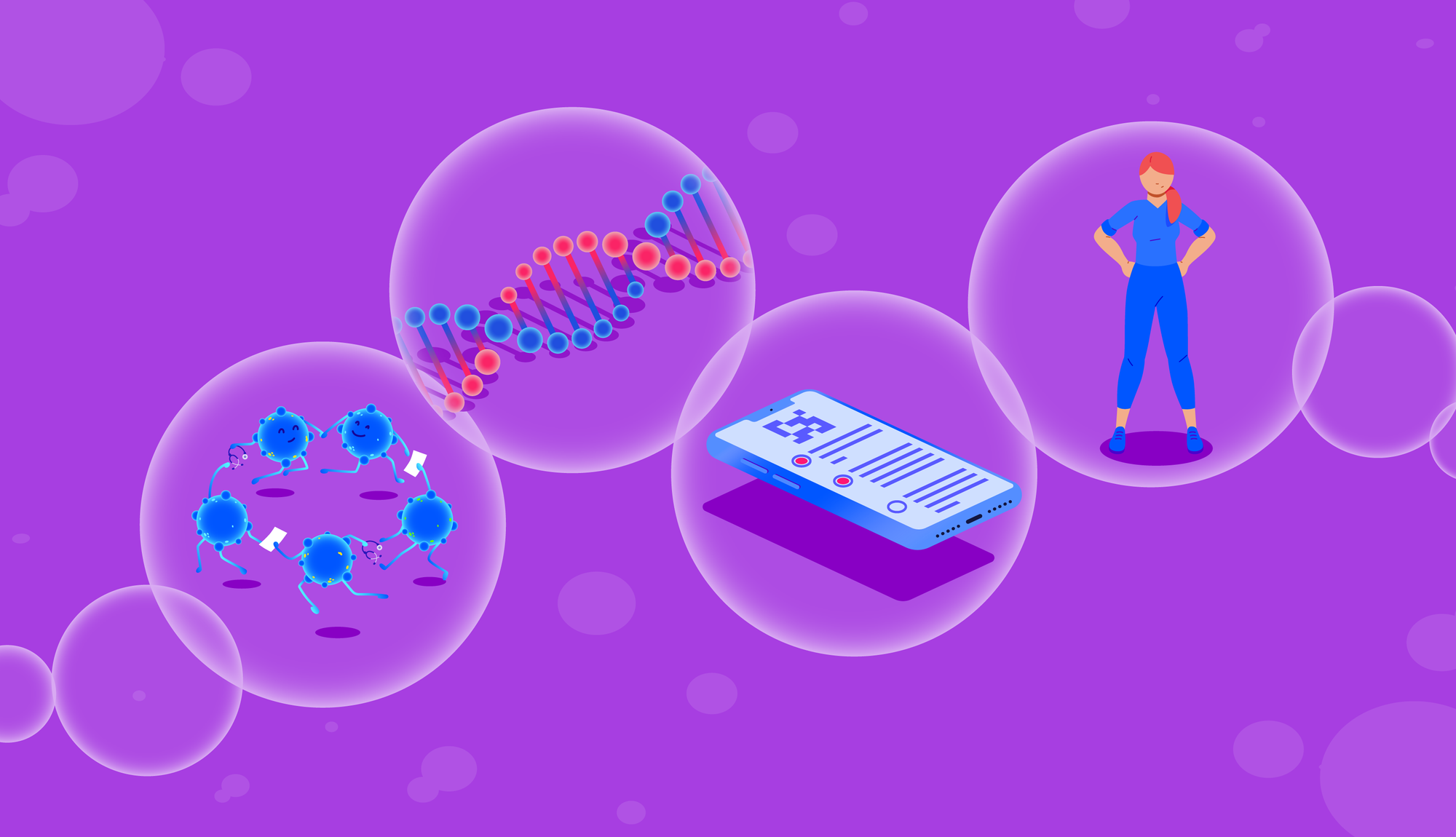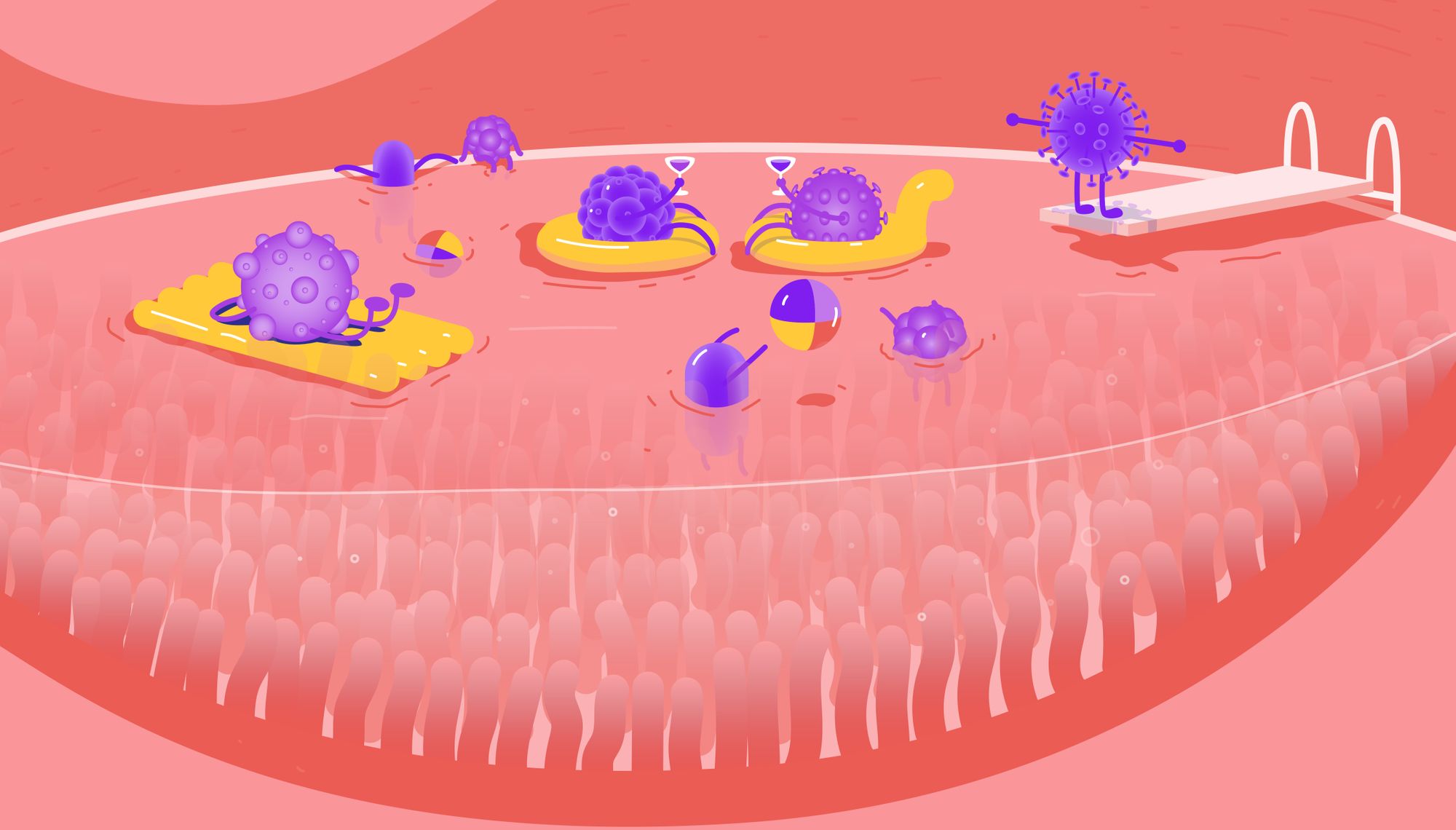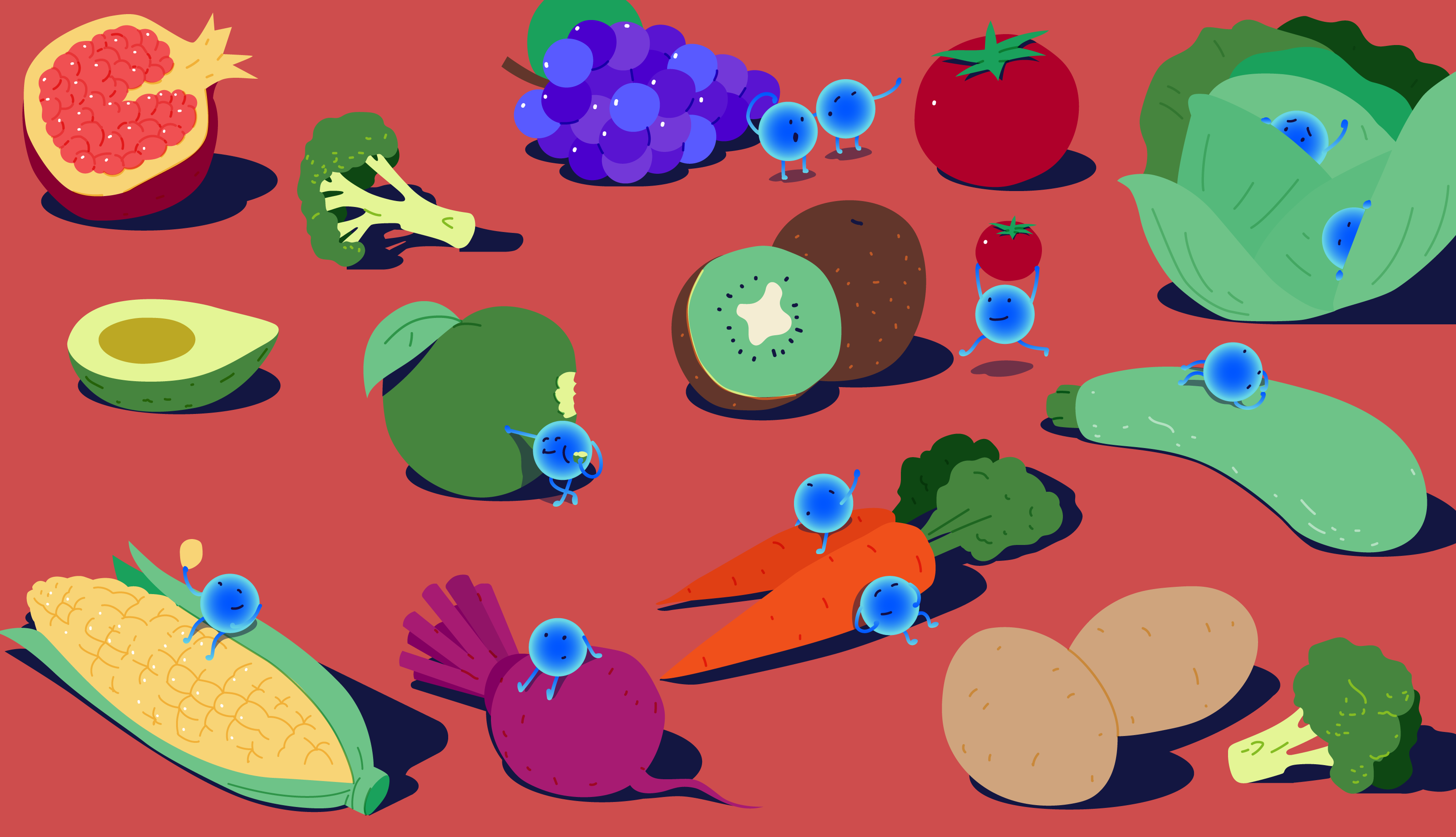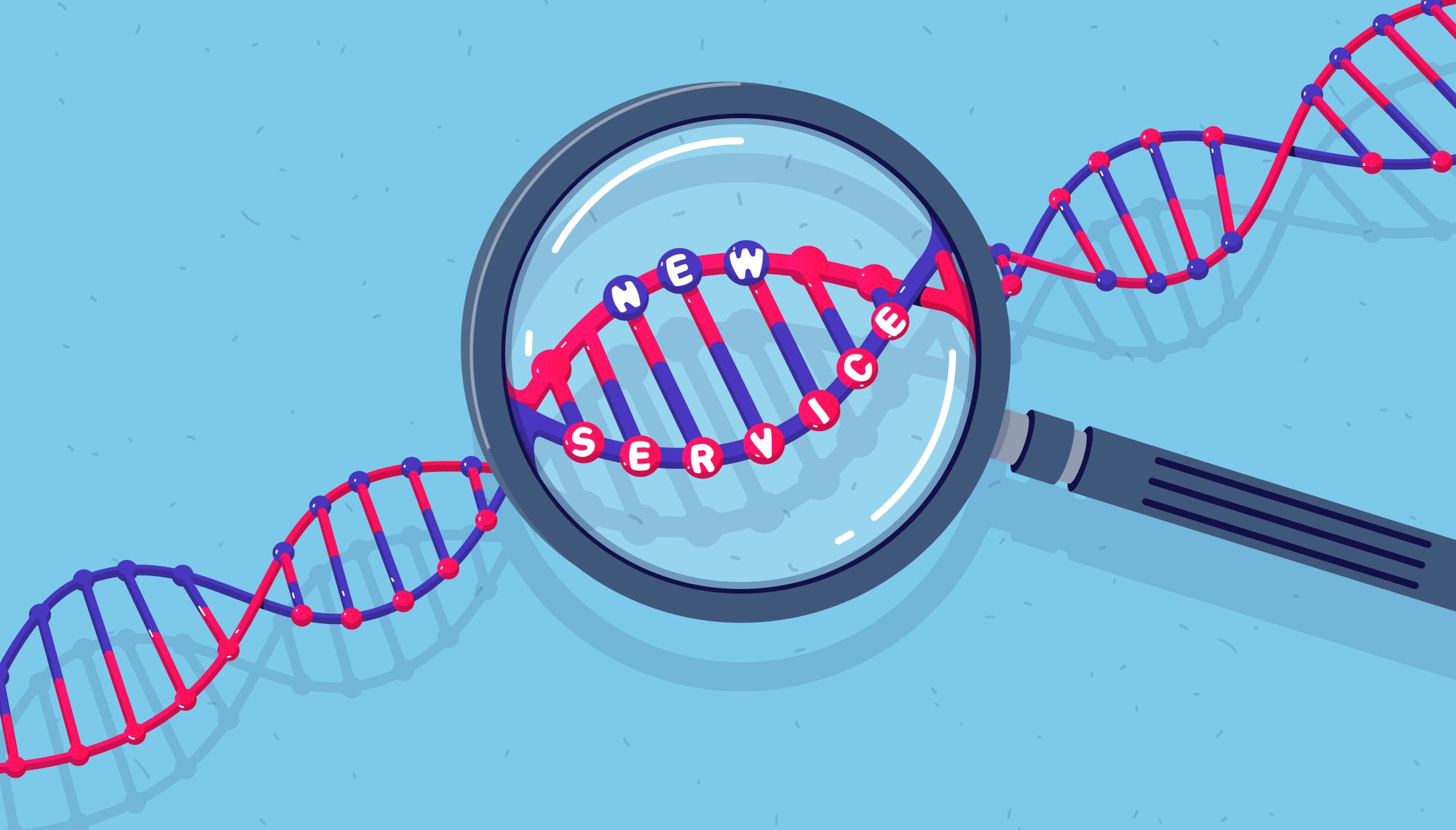You are not average, it’s proven by science. Here are five excellent reasons why one size doesn’t fit all when it comes to your health.
Averages are nice and convenient if you're dealing with high volumes of humans, but it’s time to stop looking at people like numbers, and start seeing we truly are: totally unique beings.
Table of contents
- DNA: you are not a clone
- Microbiome: it’s yours alone
- Lifestyle: no one does it like you
- Diet: every little counts
- Family: it’s not a life sentence
DNA: you are not a clone
DNA is what makes your body tick and, because we are not clones, every human’s genome is unique in its own special way.
It starts with your genes: the four-letter code that provides the blueprint of your body is unlike anyone else’s and it’s made up of nucleotides A-G-C-T.
| Letter | Nucleotide |
|---|---|
| A | Adenine |
| G | Guanine |
| C | Cytosine |
| T | Thymine |
Each cell in your body contains about 3,200,000,000 (yes, that’s 3.2 BILLION) nucleotide pairs, and your body contains about 20,000–25,000 genes. When you put it this way, it’s perhaps not surprising to think that your genetic code may influence more than just your hair texture and eye colour.
They encode the number and shape of receptors on your cells that respond to chemical signals, like insulin, opioids, and cortisol. Not to mention your sensory receptors, which explains why some people can’t stand coriander and others may sneeze when exposed to bright light.
The aura of influence of your DNA is vast. It’s what makes your immune system possible, but also partially determines your risk of vitamin deficiencies and intolerances. Some genes even influence how your body responds to medication, an area that’s currently being explored by medical scientists.
☝️Genes can also be affected by your environment, diet, and lifestyle. These factors can also upregulate or downregulate gene activities, which has consequences for your health regardless of your genetic heritage.
Microbiome: it’s yours alone
Trillions of bacterial cells live inside your large intestine, and their activities influence your whole-body health, not just your gut.
There’s about 1.5 kg of bacteria living in your colon right now, but until recently, we couldn’t see what they were doing. It is DNA sequencing technology made it possible to screen your stool and identify the bacterial genes in it.
Every person’s gut microbiome is a unique ecosystem with a multitude of different bacteria doing an array of tasks you wouldn’t have thought possible. Research now indicates that they start to colonise your gut before you even leave the womb.
The gut microbiome is involved in a lot more than just passing wind
In newborns and infants, their first job is to train your immune system, which learns to differentiate between helpful bacteria and pathogens. Once the microbiome is fully developed and you’re grown, the gut microbiome takes care of a lot of functions you couldn’t even imagine.
At the same time, your microbes take care of maintaining the correct pH in the large intestine and controlling inflammation. While some are busy doing this, others are producing nutrients, like vitamins B and K, as well as short-chain fatty acids that are essential to your overall health, like butyrate.
Factors like diet, stress, antibiotics, and illness can throw the careful balance of this ecosystem out of whack, letting opportunistic microbes take hold in the gut.
This can cause dysbiosis, which basically means balance has been lost, and it comes with digestive discomfort, but also the lowering of your protection against common diseases like Crohn's disease, ulcerative colitis, diabetes, obesity, and heart disease.
☝️Knowing the status of your gut microbiome is only part of the picture. That’s why it’s important to check all the factors involved in your health and disease risk, not just your gut microbes.
Lifestyle: no one does it like you
Erratic schedules, exercise (or lack of it), electronics, and bad habits can disturb your body’s processes and make it less resilient.
Health isn’t just about a set of biological parameters that you have been given. Every day, your lifestyle, environment, and social interactions can influence how your body deals with the workload, inflammation, and even affect how your genes act.
For example, it is well-known that the body’s insulin response doesn’t work well at night. In addition to that, the digestive system is primed for eating and digestion in the morning, but this slowly wanes until night time when it is least efficient.
How much you sleep is also important, and getting too much or too little sleep can affect your risk of common diseases. Sleep deprivation is linked to diabetes type II, heart disease, obesity, and depression. Too much sleep can also increase your risk of diabetes and heart disease, as well as stroke and death.
This astounding podcast on sleep will convince you, if we can't
Electronics can also interfere with these schedules because flat-screen TVs, computers, tablets, and smartphones emit blue light that stimulates the part of the brain in charge of keeping you awake. Not to mention that being able to stream TV on demand tends to go hand-in-hand with snacking and sitting down, both of which can contribute to weight gain.
Getting regular exercise is also a challenge in our busy lives where we are often expected to sit for many hours at a screen. When you add on time in a car or commuting, watching TV, and lazing around after a late-night out, that can make for a lot of sedentary living.
But our bodies are primed for movement, it’s how humans survived and became the dominant species on earth. So, doing exercise fulfills a basic need in our physiology, helping prevent chronic diseases, encouraging diversity of the gut microbiome, and helping control chronic inflammation.
All of these factors add up to a unique sum for health and illness. Having a regular and reliable schedule that gives you the right environment to relax, enough time to sleep, and plenty of exercise can reduce health risks, while your bad habits can increase them.
☝️Our science team designed a health questionnaire that takes into account how your lifestyle, sleep, and activity levels can influence your disease risks to help you make the right choices every day.
Diet: every little counts
What you put in your body is a fundamental feature of health and illness, but it can be hard to make the right choices nowadays.
Recent decades have seen a plethora of studies on the implications of your diet on your body, and now your microbes too. In fact, your diet is one of the most important factors when it comes to maintaining a balanced and healthy gut ecosystem.
But that’s not all. Getting enough fiber from whole plant sources influences a lot more than just gut bacteria, because different types of fiber do different things. Some can help manage blood sugar and cholesterol levels, others help food move through the intestines so you can stay regular.
Fruit, veggies, grains, legumes, seeds, and nuts also contain plant nutrients called phytonutrients that can help control inflammation and combat the oxidative damage to our cells that is caused by too many free radicals.
Sadly, the Western diet contains high levels of sugars, fats, and animal products that can encourage chronic inflammation and deplete the microbiome of beneficial species and diversity that are essential to your health.
Yet, not everyone reacts to their food in the same way. So while the Western diet causes most people to gain weight, some people don’t. But that doesn’t mean they are healthy: it's called skinny fat, and it's the same as being "fat-fat".
We’ve taken this into account in our health questionnaire to assess your disease risks based on how you eat and what nutrients are in your diet.
☝️Eating right isn’t about severely restricting your diet, it’s about reconquering it. The Atlas Microbiome Test gives you simple, personalised food recommendations so you can eat well without the guesswork.
Family: it’s not a life sentence
Your biological blueprint was given to you by the many generations of humans that preceded you on both sides of the family.
Hereditary genetic diseases occur when two parents pass down specific gene variants to their children. In many cases, the child will only inherit a carrier status, which means they won’t become ill, but they can pass it on to their children.
However, the risk of hereditary disease is often increased in small, tight-knight population groups who don’t tend to marry outside their community for religious or cultural reasons, like Ashkenazi Jews. The French-Canadian people of Quebec also have higher frequency of specific, rare hereditary diseases.
On the other hand, cystic fibrosis is the most common hereditary disease in European populations. There are many gene variants associated with cystic fibrosis that often aren’t a problem, unless two unknowing carriers have children and one of them becomes sick.
We all have a family, but we also have personal responsibility for health
The risk of passing on an active hereditary disease to children can also occur when two patients with a hereditary disease meet during treatment or in a community support setting - if they later have children. These are just a few reasons why genetic testing and genetic counselling are important means of prevention for future medicine.
Fortunately, most of the time, it’s not set in stone, like when certain gene variants can increase your risk of obesity, diabetes, or cancer. In this case, the genetic variant is one factor among many (like your diet, lifestyle, and other illnesses you have) that can increase the chances of you developing a disease.
☝️Your genetic blueprint isn’t a prison sentence. The Atlas DNA Test makes it possible to accurately identify genetic risks in your DNA and help you find ways to manage them.
The future is you
Your health is a unique combination of genetic, diet, microbiome, environmental, and hereditary factors.
Personalised medicine is the future, and it’s closer than you think. New technologies make it possible to see what makes you tick at a cellular level, and design strategies to preserve your health.
There’s very rarely one straight answer when it comes to health, and one size never fits all. That’s why we created the Atlas DNA and Microbiome Tests, in combination with an in-depth health questionnaire.
It provides a full health profile, with combined disease risk analysis of your DNA, microbiome, and lifestyle factors. It also comes with actionable recommendations to make the right choices every day, be it what to eat, what types of probiotics to take, and what bad habits to work on.
Our tests are not just used by you - doctors and nutritionists use them every day to find novel insights that help patients. We also offer genetic counselling services to customers like you on how to understand and use your test results for your health and that of future generations.
☝️TIP☝️Discover your gut bacteria and their functions with the Atlas Microbiome Test and get 10% off when you sign up for blog updates!






















